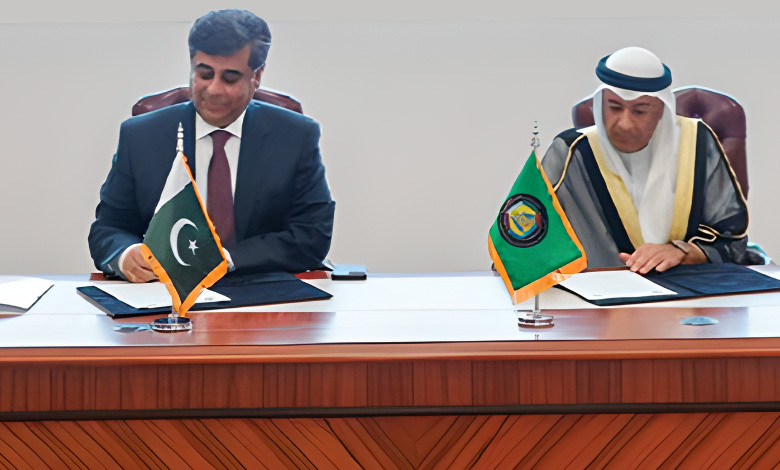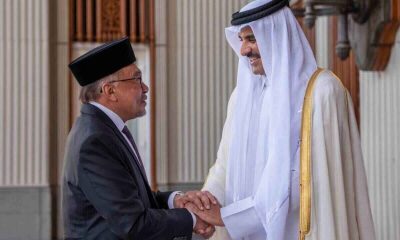According to well-informed sources, the Gulf Cooperation Council (GCC) countries are more interested in “extraordinary” incentives in the Bilateral Investment Treaty (BIT) than in goods trade, which is why the much-discussed proposed Free Trade Agreement (FTA) between them and Pakistan is reportedly making little to no progress.
“Pakistan has achieved a historic milestone in its trade relations with the GCC by successfully finalizing the FTA which marks the first FTA that the GCC has entered into with any country in the past 14 years,” asserted caretaker Commerce Minister Gohar Ejaz, along with other federal cabinet colleagues, during a press conference on October 4, 2023.
However, there hasn’t been any discernible progress made on the FTA, which, should it be signed, will only apply to a small number of products because the parties haven’t reached a consensus on a broader scope.
Unlike what the acting minister of commerce and industries claims, the sources stated that the free trade agreement with the Gulf Cooperation Council has not been signed or finalized at any forum.
Sources claim that the GCC is primarily focused on implementing changes to the Bilateral Investment Treaty (BIT), which is also being discussed in a suitable forum, to create unique incentives for investment. There are a few matters, though, on which the parties have not yet reached a consensus.
As the FTA cannot be signed until the BIT is finalized, the Board of Investment (BoI) called a meeting early in October 2023 to discuss post-FTA negotiation and develop future strategies, according to sources. Before investing in Pakistan, the GCC members—which include Saudi Arabia and Qatar—are keen for the BIT to be finalized.
During the fifth round of the Pakistan-GCC Free Trade Area negotiations, teams from Saudi Arabia and Qatar participated in the investment agreement. However, the Pakistani team did not agree to some of the articles that deviated from the Cabinet-approved BIT template because they required approval from a competent authority, the sources continued.
The possibility of reaching a Framework Agreement on Economic Cooperation between the GCC States and the Islamic Republic of Pakistan, as well as FTA negotiations, was decided upon by the GCC Ministerial Council during its 91st session in June 2004. In August 2004, the Framework Agreement was signed in Islamabad.
Dr. Majid bin Abdullah Al-Kassabi, the Minister of Commerce and Chairman of the Board of Directors of the General Authority of Foreign Trade, declared on October 1, 2023, that signing an FTA with Pakistan would help to remove obstacles and enhance interregional trade as well as economic cooperation between Pakistan and the GCC.
Through the elimination and reduction of customs duties on goods and services market access, as well as the promotion and protection of investments, the Agreement seeks to facilitate market access for both goods and services between Pakistan and the GCC countries.
The General Authority of Foreign Trade, which is in charge of the Saudi negotiating team, supervises and keeps an eye on trade negotiations to ensure that they are in line with the Kingdom’s trade goals and policies. The team also takes part in trade negotiations to represent the Kingdom’s negotiating positions and works with other nations on international trade.
The Embassy of Qatar in Islamabad reports that since January 2022, there have been constant talks between the two parties, which have resulted in the successful completion of four rounds of negotiations. They are asking Pakistani authorities to quicken the finalization process while acknowledging the benefits that both parties will receive from a successful conclusion of the Free Trade Agreement.
Conclusion:
Pakistan-GCC Free Trade Agreement (FTA) progress is challenging. The GCC’s focus on the Bilateral Investment Treaty appears to have slowed the FTA, despite optimism. The GCC countries are reportedly more interested in BIT investment incentives than goods trade. Therefore, FTA negotiations have made little progress.
Pakistani officials celebrated the FTA’s finalization as a milestone in trade relations, but insiders say no progress has been made. The parties cannot agree on the FTA’s broader scope, so no agreement has been reached.
The GCC, including Saudi Arabia and Qatar, wants to finish the BIT before the FTA. This requirement is a major obstacle because Pakistan’s team refused to agree to certain articles that deviated from the Cabinet-approved BIT template, requiring competent authority approval.
By reducing customs duties and opening markets for goods and services, the FTA was expected to boost Pakistan-GCC trade. Focusing on the BIT’s unique investment incentives has slowed the FTA.
Since January 2022, four rounds of negotiations have taken place. The Qatari Embassy in Islamabad has urged Pakistani authorities to speed up the Free Trade Agreement’s finalization, citing its mutual benefits. Current FTA challenges are due to the GCC’s focus on the BIT, which delayed progress.
Read More: Hiring Trend: Kuwait Reports 30% Spike in Indian Domestic Workers






















